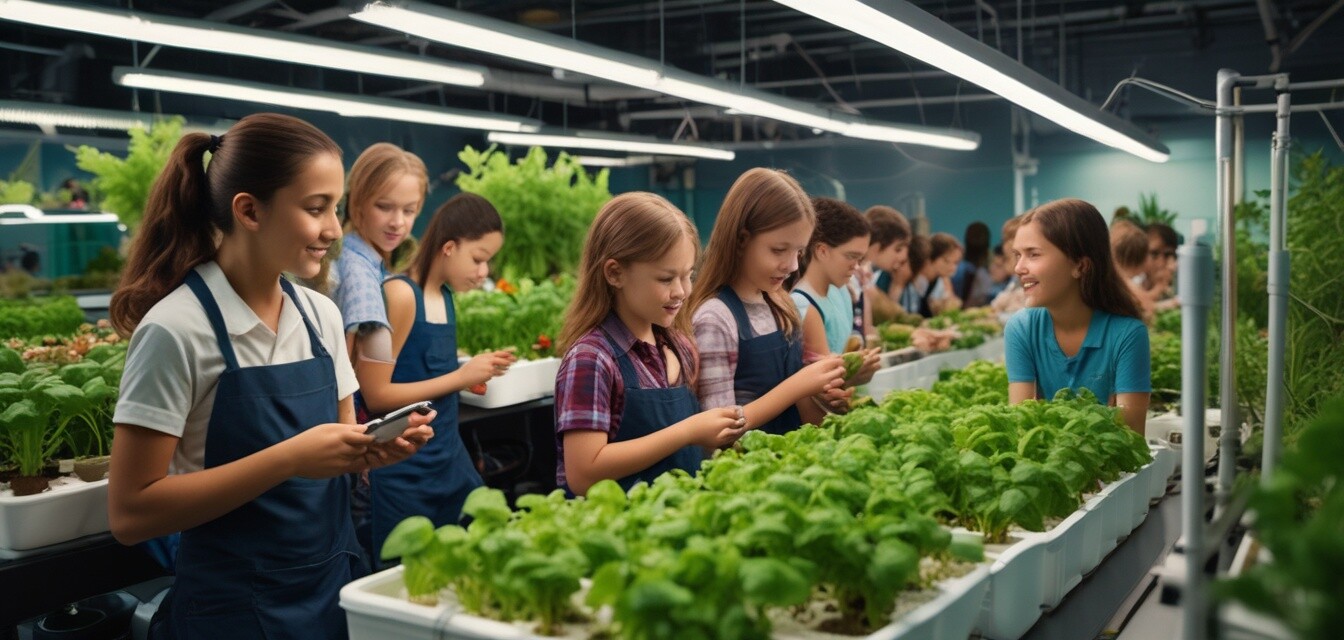
The benefits of hydroponics in children’s education
Key Takeaways
- Hydroponics teaches children responsibility through plant care.
- It enhances understanding of scientific concepts like plant biology.
- Children develop a greater interest in healthy eating habits.
- Hydroponic activities promote teamwork and collaboration.
- This method prepares children for future innovations in gardening and sustainability.
Hydroponic gardening has gained significant traction in recent years as an innovative way to grow plants without soil. But its benefits extend beyond just producing fresh vegetables. This engaging method fosters critical skills in children, equipping them with lifelong knowledge and responsibilities. In this article, we explore how hydroponics can enrich children's education and instill a love for science and healthy living.
Why hydroponics?
Hydroponics offers unique educational opportunities, sparking curiosity and a hands-on approach that traditional classroom settings may not provide. By engaging with this method, children can learn about plant growth, ecosystems, and even the technology behind hydroponic systems.
Fostering responsibility and care
Being responsible for the growth of plants in a hydroponic system teaches children invaluable life lessons:
- Consistency: Regular monitoring and care are crucial.
- Accountability: Children learn to take ownership of their actions.
- Problem-solving: Encountering challenges in plant growth can enhance their critical thinking skills.
Understanding science through hands-on experience
Hydroponics provides a practical context for scientific concepts:
| Concept | Hydroponics Application |
|---|---|
| Photosynthesis | Children observe how plants convert light into energy without soil. |
| Water Cycle | Students learn about nutrient delivery systems and water efficiency. |
| Plant Biology | Understanding root systems and plant anatomy in a soil-less environment. |
Encouraging healthy eating habits
Children directly interacting with plants can foster a positive relationship with food:
- Experience growing their food increases appreciation.
- Learning about nutrition encourages better dietary choices.
- Understanding where food comes from can spark interest in culinary arts.
Teamwork and collaboration
Implementing hydroponic gardening in group projects offers children a platform to develop teamwork skills:
- Dividing tasks such as planting, monitoring, and harvesting.
- Encouraging communication to resolve issues.
- Building a sense of community with shared goals.
Classroom integration
Many educators are beginning to incorporate hydroponics into the curriculum:
- Science Classes: Enhance lessons on biology, chemistry, and environmental science.
- Math Classes: Use measurements and data collection when tracking plant growth.
- Art Classes: Promote aesthetics by designing interesting garden presentations.
“The hands-on nature of hydroponics not only teaches essential STEM skills but also nurtures creativity and critical thinking in young minds.”
How to get started
Starting a hydroponic project in schools doesn't require extensive resources. Here are some simple steps:
Tips for beginners
- Start with small-scale systems like window gardens.
- Use easily grown plants such as lettuce or herbs for their quick results.
- Integrate lessons on the science of plant growth.
- Encourage reflection on the experience to solidify learning outcomes.
Future of hydroponics in education
As technology advances, hydroponic solutions will become more accessible and affordable for educational institutions. This growth will enable schools to further implement hydroponics in their curricula, ensuring that children are well-prepared for future innovations in agriculture and sustainability.
Pros
- Promotes hands-on learning and engagement.
- Develops essential life skills.
- Inspires interest in science and healthy eating.
- Encourages teamwork and collaboration.
Cons
- Requires initial investment for equipment and setup.
- Some children may need extra guidance.
- Maintenance can be time-consuming.
Conclusion
The benefits of hydroponics in children's education extend far beyond just learning how to grow plants. This innovative approach enhances responsibility, encourages scientific curiosity, and promotes healthy eating habits. As more educators recognize its value, hydroponics will continue to shape the future of education and empower the next generation of environmentally conscious individuals.
To explore more about hydroponics and its impact on education, check out our other articles on News and Trends, and consider visiting our sections for Hydroponic Systems and Buying Guides for educational resources.

